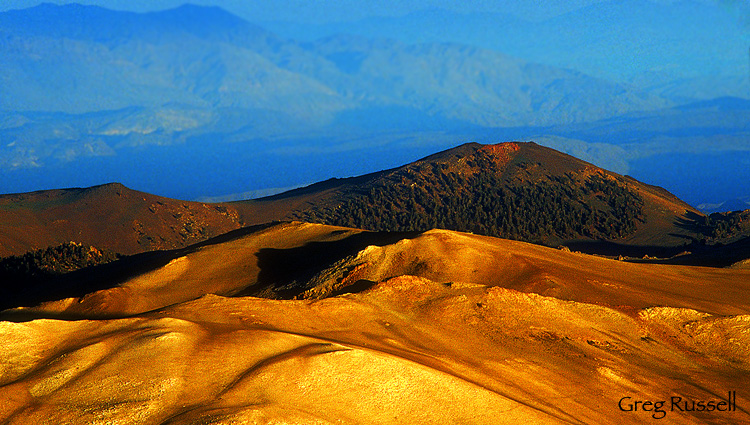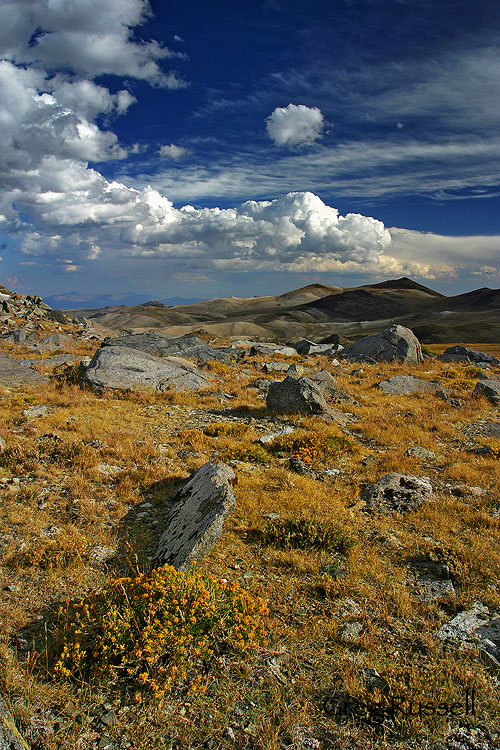As the urban/rural boundary has blurred over the years, I’ve come to see that growing up in the city had its rewards. The inner-city life has adventures all its own, but I was also lucky to have grown up in the city when I did, when there was still some open space around – untended little wild spots, overgrown orchards, vast open fields that seemed to stretch forever without a building, dense arbors in urban parks where we could hide securely from school and cops.
-Ernest Atencio
Open space was a huge part of my childhood. Every day after school, my friends and I would gather at the vacant lot near our houses, building jumps for our bicycles that were destined to break at least a few bones (although somehow they never did). We went home only when our parents came looking for us.
For those few hours after school each day the city we lived in seemed to melt away, and we could pretend to take our bikes to anyplace in the world we wanted.
As we grew older, we ventured further from our neighborhood, eventually making our way out to the piñon-juniper woodland that surrounded my hometown in northwestern New Mexico. There, we encountered coyotes, deer, as well as mysterious noises in the bushes that were probably nothing more than a deer mouse scurrying around, however it was enough to stir the remnants of an overactive childhood imagination.
So it was that my formative years were not spent in ‘wild’ wilderness necessarily, but it was wild enough to spark my curiosity, to make me want to see more wild places, and to instill in me a sense of adventure and stewardship. It was in those pygmy forests of the Four Corners that my lifelong relationship with wilderness was born.
“Without any remaining wilderness we are committed wholly, without chance for even momentary reflection and rest, to a headlong drive into our technological termite-life, the Brave New World of a completely man-controlled environment.” writes Wallace Stegner in his ever-poignant Wilderness Letter.
Stegner continues, “We need wilderness preserved–as much of it as is still left, and as many kinds–because it was the challenge against which our character as a people was formed. The reminder and the reassurance that it is still there is good for our spiritual health even if we never once in ten years set foot in it. It is good for us when we are young, because of the incomparable sanity it can bring briefly, as vacation and rest, into our insane lives. It is important to us when we are old simply because it is there–important, that is, simply as an idea.”
What Stegner is saying is that every one of us needs wilderness. I worked for several summers doing biological data collection in the White Mountains of eastern California. One summer a volunteer in our lab came to the field with me for the first time; he grew up and spent almost his entire life in Los Angeles.
After leaving the pavement, he said to me, “I didn’t know there were any dirt roads in the U.S.” That day, things I naïvely thought were commonplace appeared as a whole new world to him: deer, hawks, wild horses, violent but brief thunderstorms, and views that stretch on forever transformed his perception of the world before my eyes.
This is the wellspring of my hope. Everyone perceives “wilderness” differently, and we have all been introduced to it in different ways. We all have our own personal reasons to fight for its protection. Yet, we need it, according to Stegner, for our spiritual health.
Our spiritual health.
Perhaps it is something rooted deeply in our evolutionary past, but wilderness is healing, a place of solace and comfort. As far as efforts to protect wilderness go, we as a people have unity in our diverse perceptions of wild places. Some wildernesses are little, some are big, but they are all equally valuable.
I wonder what those piñon-juniper forests of my youth would look like today, seen through older eyes. I know at least some of it has gone away to make space for homes. However, selfishly, I like to think they remain a place of hope, sanity, imagination, and peace. Who knows, maybe some kids are building their own bike jumps there right now. That may not be such a bad thing.
When it comes to things I care deeply for, words sometimes fail me. I make photographs that (I hope) express my emotions for wild places.
What experiences formed your relationship with wild places? Where are the places you seek comfort?




Greg, thanks for the post. My connection to wilderness has similar roots, in as much as I grew up in the forested NE and although today “the woods” of my youth seem tiny, back then they were endless.
I appreciate the optimism you show. I believe we are challenged to defend wilderness today because it has lost its place in our collective conscience. For many people, it simply doesn’t factor into day-to-day living.
This subject reminds me of the book “Of Wolves and Men” by Barry Lopez. Maybe you know it? In it, he studies the extirpation of the grey wolf from most of the US. He examines different influences that shaped our attitude towards wilderness as a people, including religion. He cites passages in the book of Genesis that depict wilderness as “grey” and a wasteland.
This isn’t a statement about the bible or religion; I mean only to say that wilderness means many things to many people. How nice it would be if, as a culture, we could agree on its importance to the things you bring attention to in your post.
Wonderful, as always… Your words totally resonate with me, such that Juanli & I have foresaken much of western comfort for our basic life in SW China. We’re heading for the high peaks on Friday for 2 weeks out in the absolute wilds of Yunnan & Sichuan.
My spiritual health is in need of some salvation….
ver best wishes. Al
Beautifully written and thoughtful as always, Greg. Scale is a strange thing that changes as we do. I have clear memories of playing as a child in a vast quarry, racing bikes down treacherous steep slopes, playing soccer on fields that went on for ever. Except that when I went back as an adult everything had shrunk. Growing up in a semi-rural, agricultural county of England we enjoyed what we thought of as wide-open spaces. I doubt however if they would count for much in the vastness of larger, less densely populated countries. Nowadays I live at the opposite end of the spectrum in Hong Kong where space and silence are there but not readily accessible – and always under threat. We fight for a few hundred square meters the way others fight for land bigger than our entire territory. Small wonder how little appreciation many local people have of their environment. They have known little else. The good news however is that it is not just the expats here who fight for conservation. There is a thriving community of eco-aware young Hong-Kongers that understand the imperative of preserving what little we have. And that gives me optimism. Not much but enough to keep me going. I remember when my mother was terminally ill my refuge and solace were walking across the fields and through the woods, listening to the birds, watching the deer, breathing in the cold January frost. Wilderness it wasn’t but just paths rarely walked except by the odd rambler or birder. We need these places so we can lose ourselves in our thoughts away from the cacophony of modern life. They should never be taken for granted.
I’ve read this several times now, and for the life of me can’t come up with a response worthy of this post.
I’ll just have to settle for saying it’s a great and powerful piece. Thanks for posting it Greg.
Great childhood story that beautifully ties into valuing wilderness. I can smell the Pinon and the red-tan dust from bikes jumping in New Mexico.
Thanks all for the great comments so far! I really appreciate all of your thoughtful replies, as well as the pictures you paint for me. I think the important thing to think about here is that a ‘wilderness’ has no defined size…rather than being measured by some metric of length or width, a wilderness is measured by what it brings to us.
Greg Russell,
I think the wilderness, however perceived, is our resource for perspective. Isolated, we are able to see our own smallness in contrast with the rest of Nature, and beyond it, the Universe. It gives us a chance to develop inwardly, in establishing a sense of being….wilderness is essential, even if it is relative.
Your work touches the awareness of “place” within myself. I applaud your perspective and your expression of the same.
Hi, Eric. Thank you for this really thoughtful and insightful comment. I hadn’t thought about ‘wilderness’ as being quite so relative–at least in the sense you refer to it here–but you’re completely right. It is further proof that we have this concept deeply rooted somewhere in our genes, I think.
Thank you for the kind words regarding the blog/images in general too. I appreciate it very much!
I somehow missed this one…or else had the same response as pj. 🙂
As always, superbly written, Greg. Our perspective over the years always changes. The mystical wonderlands I remember from childhood were what I made them. Having revisited a few in later years it amazed me how they were not at all what I recalled…if they remained.
Wild, wide open spaces are key to our spirit in so many ways. They can be small spaces or vast, but the wild in them is what rejuvenates the majority of us. When I think of my old age and where I may end up, I do not want it to be a senior ant hill but more of a quiet natural space. I do hope that will always be available to all for the raising of spirit and the good of the land.